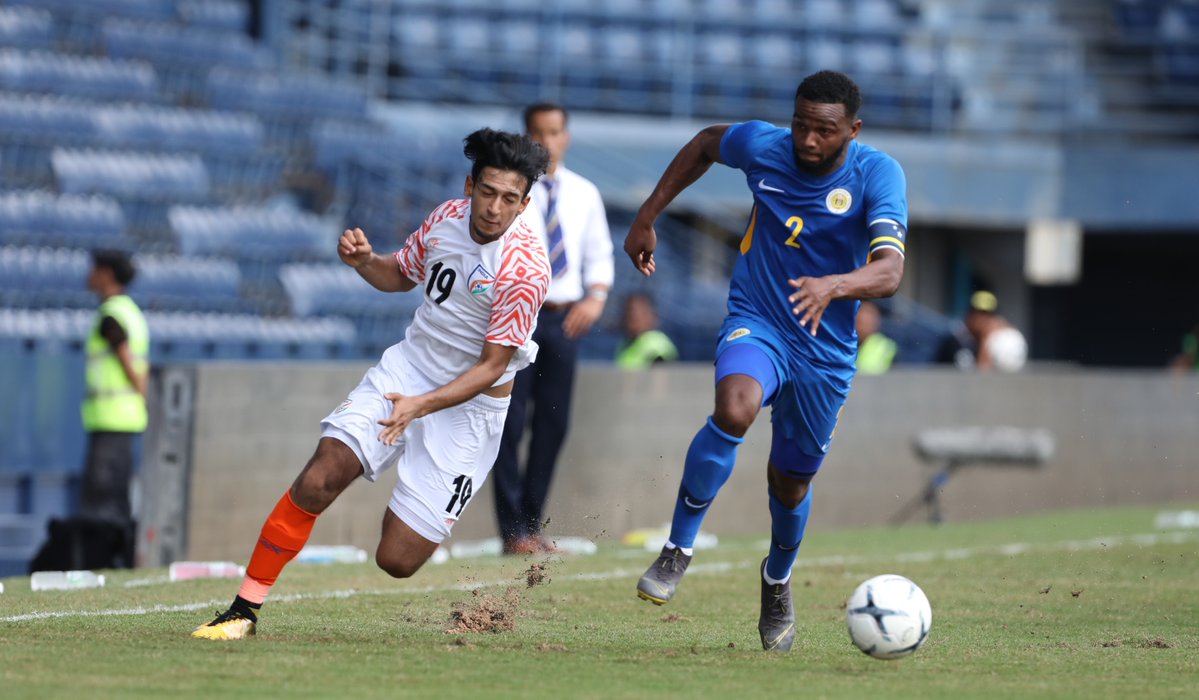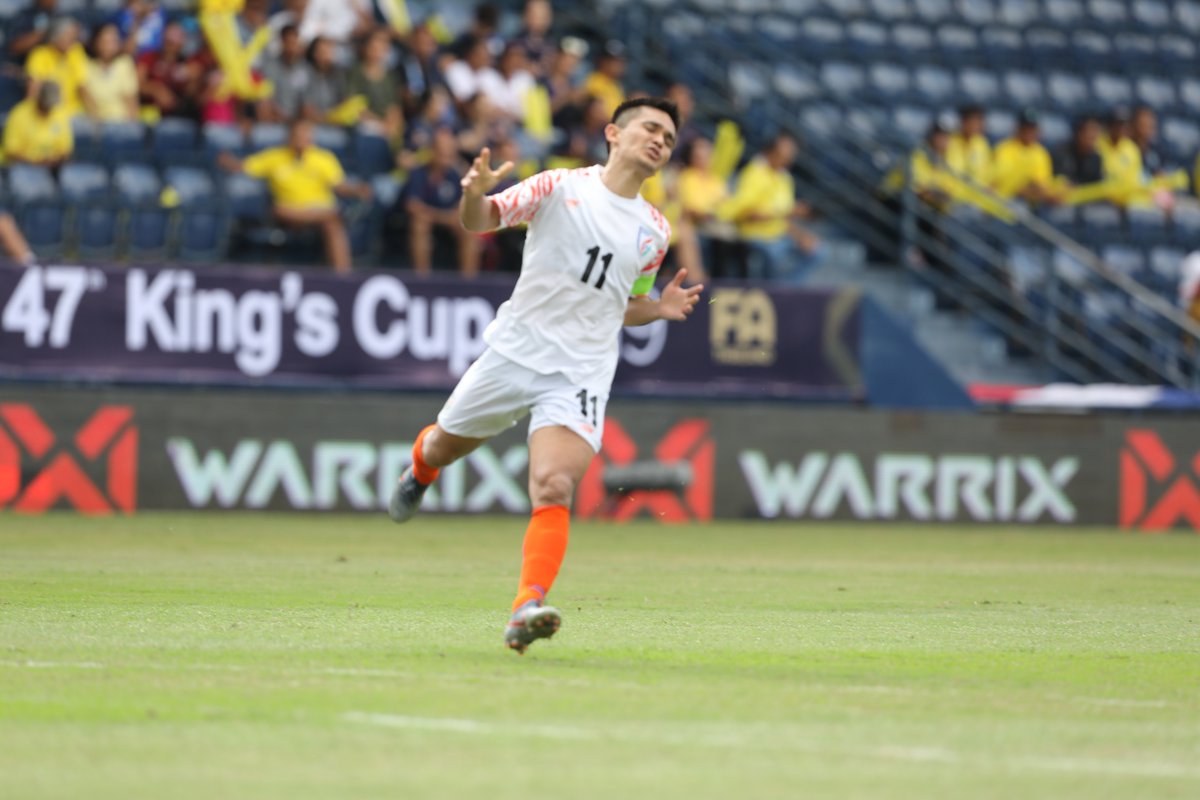Featured
A Study in Stimac

Great things take time and Igor Stimac would probably love to believe this more than anybody else in the planet right now. In his first game in charge, his side was blown away by a dominant Curacao 3-1 at the Kings’ Cup in Buriram, Thailand. The CONCACAF side was ruthless in the opening 35 minutes, scoring three goals and leaving the Blue Tigers with a mountain to climb in the second half, which they of course could not.
How did Stimac set up his team?
The Croatian set up his team in a 4-2-3-1 formation, with Sunil Chhetri as the sole man upfront. However, he kept changing his tactics as the game progressed, which seems to be a classic case of the manager not discovering the right personnel at certain positions. Given that this was his first fixture in charge, he can probably be absolved for this.
Having opened the game gingerly, the Indian backline soon faltered thanks to some poor defending and ball-retention. Quite often, the back four turned into a back three with Sandesh Jhinghan, Rahul Bheke and Pritam Kotal comprising the defence. SubhasishBose was often left to plug the holes that crept up between Jhinghan and Bhekein defence, but it was not a job that he did with any particular efficiency. In midfield, Pronay Haldar, Lallianzuala Chhangte, and Brandon Fernandes started off while Sahal Abdul Samad, Udanta Singh, and Chhetri comprised the rest of the team.
What went wrong for India?
There were several factors that contributed to the loss, but they can be condensed into three distinct points apart from the fact that they were playing for the first time under a new manager with six debutants on the 23-man shortlist.
Defensive lapses: All the three goals that India conceded came down to the fact that Jhinghan, Bheke and Kotal looked absolutely lost when it came to tackling the short passing and quick turnovers from the Curacao side. Gevaro Napomuceno, Leandro Bacuna and Roly Bonevacia found a lot of time and space on the ball, with Kotal especially guilty of repeatedly guilty of failing to mark the mercurial Napomuceno. Stimac’s decision to drop the in-form Adil Khan, revert to Constantine’s three-man backline and not press Curacao cost them dearly.
Slow transition: The space between defence and midfield was exploited to the fullest extent by Curacao. Pronay Haldar looked out of sorts throughout the game, exposed repeatedly by the press and caught on the ball. His passing, positioning and passion all gave the impression that he was both disinterested and unfit to play at that level. The same could also be said for Chhangte, who like Haldar looked lost and failed to produce anything of note.
 Chhetri got his 68th international goal and remains India's best player till date.
Chhetri got his 68th international goal and remains India's best player till date. If anything, the lackadaisical attitude of the central midfield hurt India’s chances, as they were slow in transitioning from defence to attack. Throughout the game, Stimac’s proposed counter-attacking strategy was disrupted due to the midfield’s inability to release a quick final ball. This in turn, also affected Sunil Chhetri’s morale as the skipper, who was making a record 108th international appearance for the Blue Tigers. The Bengaluru FC man was playing in an unfamiliar number 9 role, but kept on drifting wide to get involved with the game while Sahal made marauding runs down the middle. However, the midfield’s inability to bring the forward line into play turned his efforts futile.
Curacao’s superior quality: Curacao maybe a nation the size of Bengaluru’s tail, and they maybe only 19 places above India in FIFA rankings but the gulf in class was obvious. The Carribean country has players playing in top leagues across Europe, with Bacuna the pick of the lot having played in the Premier League with Cardiff City. They sealed the fate of the game within the opening 35 minutes and then took their foot off the pedal, managing the game really well. India did come close on a few occasions to reduce the deficit, especially in the second half with Udanta and Chhetri both missing sitters but overall the Blue Tigers rarely looked threatening enough to worry the island nation.
What was Stimac’s take on the game?
In the post-match press conference, Stimac clarified that there is a long way to go but he also noted a few key pointers from the match. He said, "As I said yesterday, Curacao were the favourites today, and they showed that they are a different class in the first half. Six-seven top quality players who were fit as their season finished just a few days back."
 India needs to stop playing football like a small nation.
India needs to stop playing football like a small nation. He also noted that most of these factors will take time to improve, especially India’s decision-making in the final third. The 51-year-old mentioned, "Our decisions in the final third weren't good. There is a long way for us to keep learning. The learning process will be long. I am very proud of what we have shown, especially in the second half."
Author’s take
While it was widely accepted that this would be a game to test Stimac’s ideologies and not his execution, it has shown us a glimpse as to what to expect from the Croatian. With the right personnel in place, India will look to stop playing football like a “small nation” and adapt to the modern game. This means higher pressing, faster transitions, smart one-twos and using the full width of the pitch while in possession.
Amarjit Singh Kiyan, Sahal and Raynier Fernades’ performances will no doubt be taken notice of by the coach; with these three most likely to form the spine of the Indian team for the next decade. The deadwood will be eradicated quickly, with the third-place game against Thailand, whom India beat 4-1 in the AFC Asian Cup will be Stimac’s next test and he will be eager to find out his preferred players at every position as soon as he can before the Intercontinental Cup in July at home.